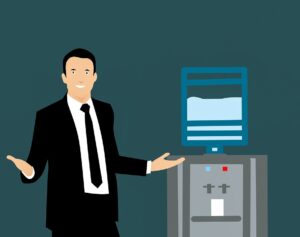The Importance Of Water Treatment!
Are you dissatisfied with the quality of the water coming out of your faucets? Does it taste or smell odd, or leave a mineral residue on metal and glass surfaces? Are you worried that it’s not safe to drink? It’s time to call in a water treatment company for testing and to come up with a customized solution.

“Water treatment” is an umbrella term that covers the spectrum of ways in which your water quality can be improved. You might need a filtration system to get rid of certain chemicals and contaminants, or a water softener to eliminate hard water. Treatment is never a one-size-fits-all solution, as there are many variables to take into account. For instance, water quality problems can vary based on your geographical location-not only your city and state, but also the land that your home is built on and any nearby structures that might be leaching contaminants into the groundwater. A water treatment company can assess your specific needs and find a solution that works for you.
Water Testing
Before your local water treatment expert can solve your quality issues, he needs to know exactly what he’s dealing with. That’s where water testing comes in. While certain characteristics are indicative of certain problems-for example, water that leaves a white mineral residue on surfaces is hard and needs softening-many chemicals and contaminants can only be detected through professional testing. And, because treatments that solve some water issues will not solve others, you want to be sure you’re attacking only the water quality problems that are affecting you.
Water Filtration Systems
If herbicides, pesticides, chlorine, chloramine, industrial solvents, and other contaminants are found in your water sample, it’s time to install a water filtration system. Depending on your needs, a treatment pro might recommend whole-house filtration or on-tap filtration. As their names suggest, whole-house filtration cleans every drop that enters your home via your pipes, while an on-tap filter is attached to an individual faucet-perhaps the one from which you get your drinking and cooking water. If you’re concerned about your impact on the environment and want to ensure you’re getting the chemicals out of your water without creating any dangerous by-products, consider a water filtration system.
Water Softening
Water that contains large amounts of calcium and magnesium is known as “hard water,” and can create a mineral buildup in your pipes, on surfaces that see a lot of liquid passing through (such as shower and sink faucets), and even inside appliances like boilers and coffee pots. If your water testing confirms that you have hard water, then you need a softening system. These specialized filters tackle the mineral content in your tap water. Traditional water softeners utilize salt to eliminate the minerals in hard water; however, if you’re looking for a greener option to avoid salt waste and sodium by-products, ask your water treatment pro about a salt-free softener.
Treatment companies should offer an array of services that can be tailored to your needs, including environmentally friendly choices and solutions for families on a budget. Ask to have all of the available options explained to you, so you can make an informed decision. Then, take action to get your water clean and healthy, to protect your home, your belongings, and your family.
Visit our Water Treatment Page!!
Go Home

